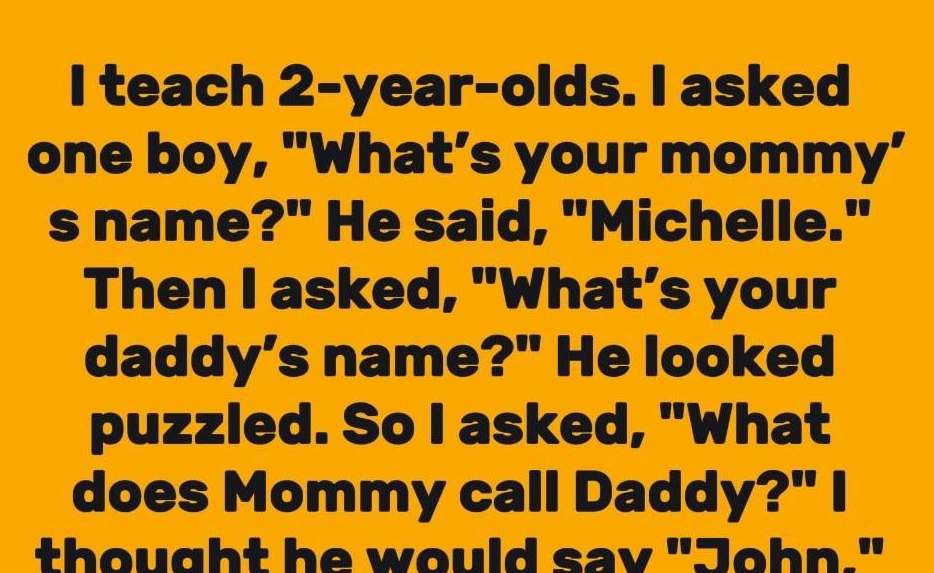As a preschool teacher, I have the joy of witnessing the most genuine moments with young children each day. One sunny morning, during our cozy circle time, I planned an engaging activity to encourage the children to practice their communication skills. I invited each child to share their parents’ names with the group.
When little Noah’s turn arrived, he proudly declared, “My mommy’s name is Michelle.” I beamed with encouragement and said, “Wonderful, Noah! And what’s your daddy’s name?” Noah tilted his head, his brows furrowing slightly in thought. Sensing he might need a bit of help, I rephrased my question with care. “What does Mommy call Daddy?” I asked warmly, anticipating a name like “John” or “David.”
Noah’s eyes sparkled as if a lightbulb had gone off in his mind. With unwavering confidence, he announced, “Sweetheart.” The room filled with the soft giggles of his classmates, and I couldn’t hold back a gentle chuckle myself. The moment lingered with me long after. To Noah, his father wasn’t defined by a name like “John” or “Mr. Smith.” Instead, his father was the warmth and affection his mother expressed.
This sweet exchange revealed a beautiful truth: children view the world through the lens of love, not through labels or titles. The words and actions they observe daily shape their understanding of relationships and family. For Noah, “Sweetheart” wasn’t merely a word—it was the essence of his father’s role as a devoted partner and parent.
The experience prompted me to reflect on the language we use around children. The way we speak and interact lays the foundation for how they perceive care and connection. That day, I was reminded that while we aim to guide and teach young minds, their innocent perspectives often impart the most profound lessons about love and kindness.








